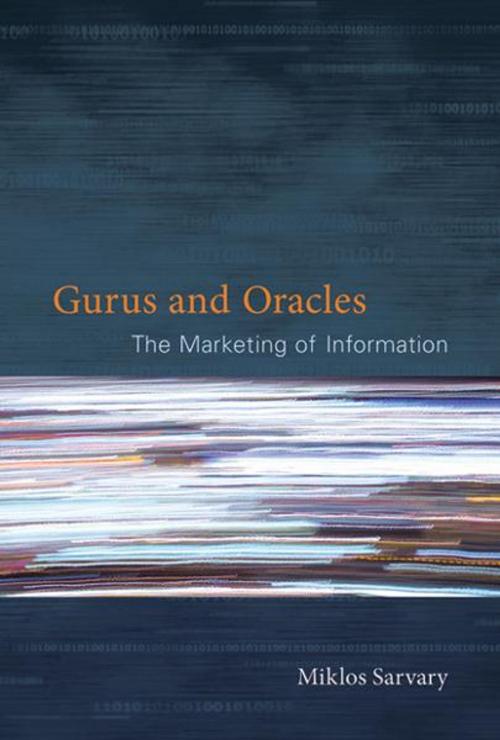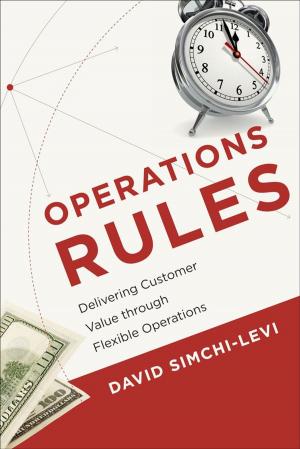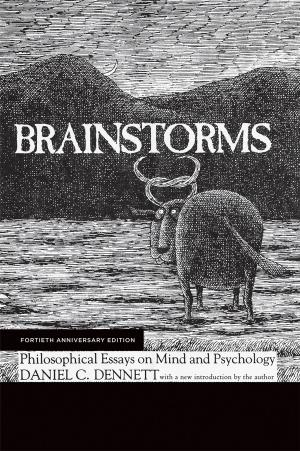Gurus and Oracles
The Marketing of Information
Business & Finance, Industries & Professions, Information Management, Marketing & Sales| Author: | Miklos Sarvary | ISBN: | 9780262300384 |
| Publisher: | The MIT Press | Publication: | December 16, 2011 |
| Imprint: | The MIT Press | Language: | English |
| Author: | Miklos Sarvary |
| ISBN: | 9780262300384 |
| Publisher: | The MIT Press |
| Publication: | December 16, 2011 |
| Imprint: | The MIT Press |
| Language: | English |
An examination of the information industry, from Reuters to Facebook, and the special characteristics of information and knowledge markets.
We live in an “Information Age” of overabundant data and lightning-fast transmission. Yet although information and knowledge represent key factors in most economic decisions, we often forget that data, information, and knowledge are products created and traded within the knowledge economy. In Gurus and Oracles, Miklos Sarvary describes the information industry—the far-flung universe of companies whose core business is to sell information to decision makers. These companies include such long-established firms as Thomson Reuters (which began in 1850 with carrier pigeons relaying stock market news) as well as newer, dominant players like Google and Facebook. Sarvary highlights the special characteristics of information and knowledge and analyzes the unusual behaviors of the markets for them. He shows how technology contributes to the spectacular growth of this sector and how new markets for information change our economic environment.
Research in economics, business strategy, and marketing has shown that information is different from other goods and services; this is especially true in competitive settings and may result in strange competitive market outcomes. For example, Sarvary points out, unreliable information may be more expensive than reliable information; information sellers may be better off inviting competitors into their market because this may allow them to increase their prices; and competition may lead to increased media bias—but this may benefit consumers who want to discover the truth. In Gurus and Oracles, Sarvary explores the implications of these and other peculiarities for information buyers and sellers.
An examination of the information industry, from Reuters to Facebook, and the special characteristics of information and knowledge markets.
We live in an “Information Age” of overabundant data and lightning-fast transmission. Yet although information and knowledge represent key factors in most economic decisions, we often forget that data, information, and knowledge are products created and traded within the knowledge economy. In Gurus and Oracles, Miklos Sarvary describes the information industry—the far-flung universe of companies whose core business is to sell information to decision makers. These companies include such long-established firms as Thomson Reuters (which began in 1850 with carrier pigeons relaying stock market news) as well as newer, dominant players like Google and Facebook. Sarvary highlights the special characteristics of information and knowledge and analyzes the unusual behaviors of the markets for them. He shows how technology contributes to the spectacular growth of this sector and how new markets for information change our economic environment.
Research in economics, business strategy, and marketing has shown that information is different from other goods and services; this is especially true in competitive settings and may result in strange competitive market outcomes. For example, Sarvary points out, unreliable information may be more expensive than reliable information; information sellers may be better off inviting competitors into their market because this may allow them to increase their prices; and competition may lead to increased media bias—but this may benefit consumers who want to discover the truth. In Gurus and Oracles, Sarvary explores the implications of these and other peculiarities for information buyers and sellers.















